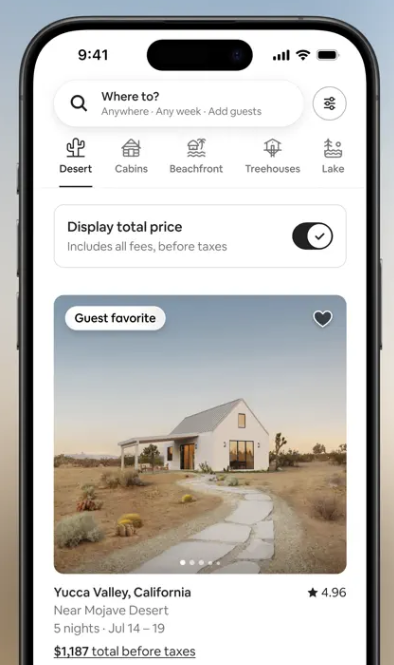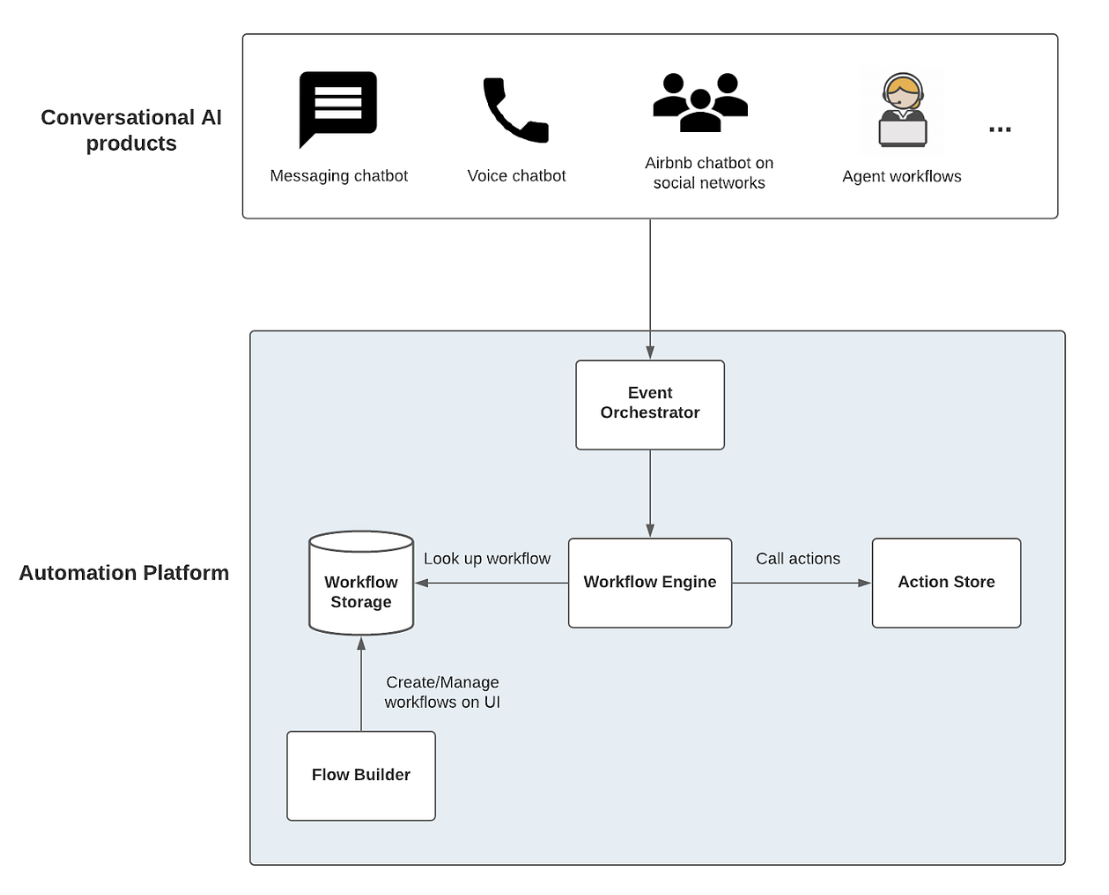Airbnb plans to become a platform for travel akin to how Amazon in commerce courtesy of a multi-year transformation and a new tech stack.
Speaking on the company's fourth quarter earnings call, Airbnb CEO Brian Chesky said the company has spent the "past several years preparing for Airbnb's next chapter" and rolled out more than 535 features in upgrades in its app over the last two years.
 Indeed, that velocity is due to a revamped tech stack designed to take advantage of AI and improve the overall experience. Airbnb is largely built on Amazon Web Services and has nearly 5 billion visitors a year.
Indeed, that velocity is due to a revamped tech stack designed to take advantage of AI and improve the overall experience. Airbnb is largely built on Amazon Web Services and has nearly 5 billion visitors a year.
Chesky said Airbnb has launched Guest Favorites, which makes it easier for guest to find listing, the Co-Host network, to find local hosts to manage your Airbnb, and destination and map improvements. For good measure, Airbnb is redesigning its checkout experience to remove friction.
These improvements have boosted conversion rates to drive fourth quarter results. Airbnb reported fourth quarter net income of $461 million on revenue of $2.5 billion, up 12% from a year ago. For 2024, Airbnb reported net income of $2.6 billion on revenue of $11.1 billion, up 12% from a year ago.
Chesky in February 2023 noted that AI would benefit Airbnb's long-tail of data. Since Airbnb's 2020 IPO revenue has tripled. In many ways, Airbnb appears to be a travel version of Uber, which has a model that revolves around data.
- Uber outlines its autonomous vehicle plan
- How Uber's tech stack, datasets drive AI, experience, growth
- Uber aims to press its 'data advantage' for AI, model training
Chesky said:
"We rebuilt our platform from the ground up with a new technology stack. We've also upgraded our messaging system into a single unified platform, making communication between guests and hosts smoother more reliable. Now, with this new tech platform, we are able to innovate faster and expand beyond short term rentals into becoming an extensible platform with a range of new offerings and 2025 marks the start of Airbnb's next chapter."
Simply put, Airbnb plans to expand beyond its core business to adjacent areas starting in May. Airbnb plans to invest $200 million to $250 million to launching and scaling new businesses. A lot of that spending will go to product development and marketing.
The AI strategy
With the new tech stack, Chesky said Airbnb wants to be in position for trends like agentic AI, but noted that "it's still really early."
"I think AI is going to have a profound impact on travel, but I don't think it's yet fundamentally changed for any of the large travel platforms," said Chesky. "We want to be the leading company for AI enabled traveling and eventually living."
Chesky noted that trip planning with AI is early and not ready for prime time. "We're actually choosing a totally different approach, which is we're actually starting with customer service. So later this year, we're going to be rolling out as part of our summer release, AI powered customer support," said Chesky, who noted genAI works well with multiple languages and can read thousands of documents easily.
Airbnb CEO: GenAI's impact on app experiences minimal so far
Going forward, the plan for Airbnb is to take that AI customer service agent and bring it to Airbnb search to "eventually graduate to be a travel and living concierge," said Chesky.
Chesky said AI will drive efficiencies for customer service as well as developer productivity.
With model prices falling, the commoditization of models will drive value to platforms. Chesky noted that Airbnb aims to be the traveling and living platform.
In the big picture, Chesky said that Airbnb can leverage AI effectively because it is one brand and one app.
He said:
"We want the Airbnb app, kind of similar to Amazon, to be one place you go for all of your traveling and living needs. A place to stay is just really, frankly, a very small part of the overall equation. Every new business we launch, we'd like to be strong enough. It could stand alone, but it makes the core business stronger. I think that each business could take three to five years to scale. A great business could get to a billion dollars of revenue. Doesn't mean all of them will. And you should be able to expect, like, one or a couple businesses to launch every single year for the next five years. We're going to start initially with things very closely adjacent to travel."
Chesky added that new businesses for now will stay close to travel and then Airbnb will expand from there. For now there are dozens of adjacent markets for Airbnb to expand into.
The tech stack
Although Airbnb has been a relatively vocal customer of AWS in recent years it has been quiet. Airbnb was a featured customer at AWS re:Invent 2022, but has noted in its annual report that it is busy integrating AI into its tech stack.
Airbnb noted in its annual report that "our technology platform incorporates the use of AI and ML Technologies, for example, for fraud detection, search, enabling customized features and enhancing community support."
Chesky seemed to indicate that Airbnb was focused on multiple models and optimization, which would point to services like Amazon Bedrock. DeepSeek and cheaper models will also bring down prices, he noted. "I think it's a really exciting time in the space because you've seen like with DeepSeek and more competition with models is models are getting cheaper or nearly free, they're getting faster and they're getting more intelligent and for all this purpose, starting to get commoditized," he said.
Airbnb said in its annual report that it is investing in developing, maintaining and operating AI and machine learning models. That investment will also increase compute costs in the future. Airbnb is also investing in developing its proprietary data sets.
Beyond the AWS foundation, Airbnb is decidedly has a build culture focused on open source tools, sponsoring them and building frameworks that can be used to continuously improve and integrate new technologies.
Notable upgrades include the following:
- An Intelligent Automation Platform (AP) designed for conversational AI. AP is an enterprise platform designed to support conversational AI products across multiple channels.

- Airbnb's Data Warehouse storage from legacy HDFS clusters to S3 and a conversion to Iceberg tables.
- Graph neural networks.
- And Journey Platform, a low-code tool to create complex workflows.


